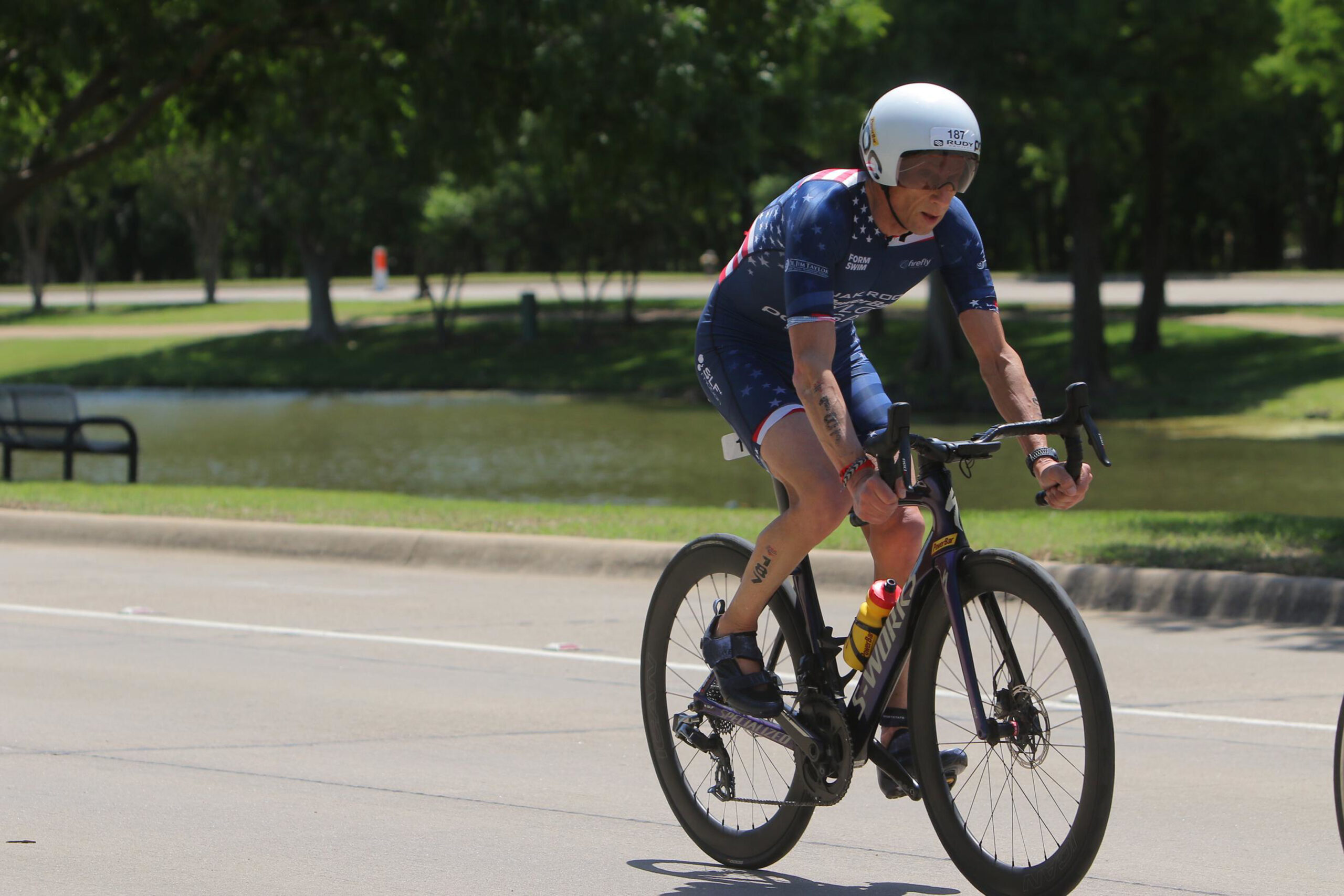We triathletes are deep into race season with many big races approaching rapidly. For me, those include the World Sprint Championships in Germany in a few weeks, the USAT National Championships in Milwaukee in August, and the World Standard-distance Championships in Spain in September. For long-course triathletes, it might be the World Ironman and 70.3 Championships in the fall. For still others, you have your own “A” races on your schedule. You’ve been aiming for these big races all season, working hard in training, and doing your best in qualifying races. Hopefully, you feel you’re ready to swim, bike, and run as fast as you can on race day.
Those of you who regularly read my posts know that my goal for you is to achieve Prime Triathlon, which I define as performing at your highest level consistently under the most challenging conditions. There is no more important time to achieve Prime Triathlon than in the your designated “A” races of the year.
The days leading up to these big races are crucial to achieving your competitive goals. You have to be optimally trained and at really fit, your equipment dialed in, tapered and rested, and well fueled. But the area that will probably make the biggest difference in whether you perform your best or crash and burn is your attitude toward the big races. Your mindset will impact every psychological contributor to your triathlons including your motivation, confidence, intensity, focus, and emotions. A healthy attitude will set you up for a psychology and physiology that will allow your best swimming, biking, and running to emerge on race day. An unhealthy attitude, by contrast, will almost guarantee failure.
A healthy attitude can be summed up in what I call the “4 Ps for You “A” Triathlons:” Perspective, Process, Present, and Positive.
Perspective
It’s easy as the big races approach to lose perspective. When I talk about perspective I mean the importance you place on those races. You may think: “They are the BIGGEST races of the season for me and I’ve worked so hard. If I don’t do well, it will kill me!! I MUST do well!” It is just that attitude that may prevent you from having the performances and getting the results you want. These races are important to you and, if you don’t perform as well as you would like, you will be disappointed, but they most certainly will not kill you.
Think of it this way. Let’s say that before your race, someone comes up to you, shows you a gun, and tells you that if you don’t perform well, they will be at the finish line and shoot you dead. Would you be nervous? Yes, terrified, in fact. Would you be able to swim, bike, and run well? Definitely not! Of course, there will be no one at the finish line with a gun, but, when you lose perspective and feel that your life (not your physical life, but your psychological life) is on the line, then the same feelings of threat and fear arise (it’s your survival instinct kicking in followed by your fight-or-flight reaction). And with this reaction, you have little chance of performing your best.
If you zoom your mind in and look too closely at these races, it’s easy to think that they are life or death because they loom so large in your visual field. But if you can zoom out and see the races in the long-term context of your entire season, namely, they are just a few small steps in a journey toward your long-term goals, they won’t seem quite so important. The result? You’ll be psychologically and emotionally prepared to perform your best on race day.
Process
One of the most common problems that occurs in triathletes as big competitions approach is a shift in their focus away from process and onto outcomes. Let me explain. A process focus involves paying attention to those things that help you perform your best, for example, technique, tactics, and pacing. In contrast, outcome focus involves focusing on the possible results of a race: winning, losing, whether you will qualify for the next level of races, or who you might beat or lose to. Let me make this very clear: An outcome focus is the kiss of death in triathlon. Here’s why.
Many people believe that focusing on the outcome will increase the chances of that outcome occurring, but the opposite is actually true. When does the outcome of a triathlon occur? After you cross the finish line, of course. And if you’re focusing on the finish, what are you not focusing on? Well, the process, obviously. Here’s the irony. By focusing on the process rather than the outcome, you have a much better chance of performing your best in each segment of the race because you are paying attention to things that will help you swim, bike, and run well. And, if you have three good legs of a triathlon, you’re more likely to achieve the results you wanted in the first place.
Also, why do you get nervous before big races? Because you’re afraid of the outcome, more specifically, you’re afraid of failure. So by focusing on the outcome, you’re more likely to feel anxious (a little anxiety is good, but too much is really bad) and less likely to perform well and achieve the result you want. In contrast, if you focus on the process, you won’t have a fear of failure, you’ll stay relaxed, and you’re more likely to perform your best, the result of which is the outcome you wanted in the first place.
Present
Another shift that can occur before big races is a focus from the present—what you need to do to perform well now—to either a past focus—onto results you had in the past—or a future focus—onto the results you may or may not get in the big races.
Let’s start with a past focus. There’s a saying that you can’t change the past, but you can ruin a perfectly good future by worrying about it. The reality is that you can’t change the past, so there’s no point in even thinking about it (except perhaps to learn from your mistakes so you don’t repeat them). If something bad happened in the past, be disappointed, then let it go. If something good happened, revel in it, then let it go. Looking back has no value to your present.
Now about the future. Thinking about the future also does you no good because you can’t control it directly. It can cause doubt and worry because it often triggers a fear of failure. A future focus can create anxiety because it makes you think about expectations that you might feel. Mostly basically, if you’re focusing on the future, you’re not focusing on your race in here and now.
If you want to control the future, the only way to do so is to control the present. This means directing your focus on what you need to do to swim, bike, and run your best right now.
Positive
Perhaps the worst thing that happens to many triathletes before a big event is they start to go negative. The expectations and pressure that you can feel before a big race can cause your confidence, which may have been high from all of your training and racing up to this point in the season, to plummet as you focus on all of the bad things that can happen in the upcoming races. You may go from being your best ally to your worst enemy. What are the chances of good things happening in those races with this “dark” mindset? Let’s me answer that question for you: pretty darned low.
Your only chance to achieve your goals for the big races is to stay positive and remain your best ally. This doesn’t mean you have to be Stuart Smiley (of Saturday Night Live fame) all the time; feeling some doubt is natural. Just make sure that most of what you think about related your upcoming races is positive and hopeful.
In sum, if you really want to swim, bike, and run your best in your upcoming “A” triathlons, remember the 4 Ps and you can be pretty confident that your mind will help you, rather than hurt you, achieve your race goals.


